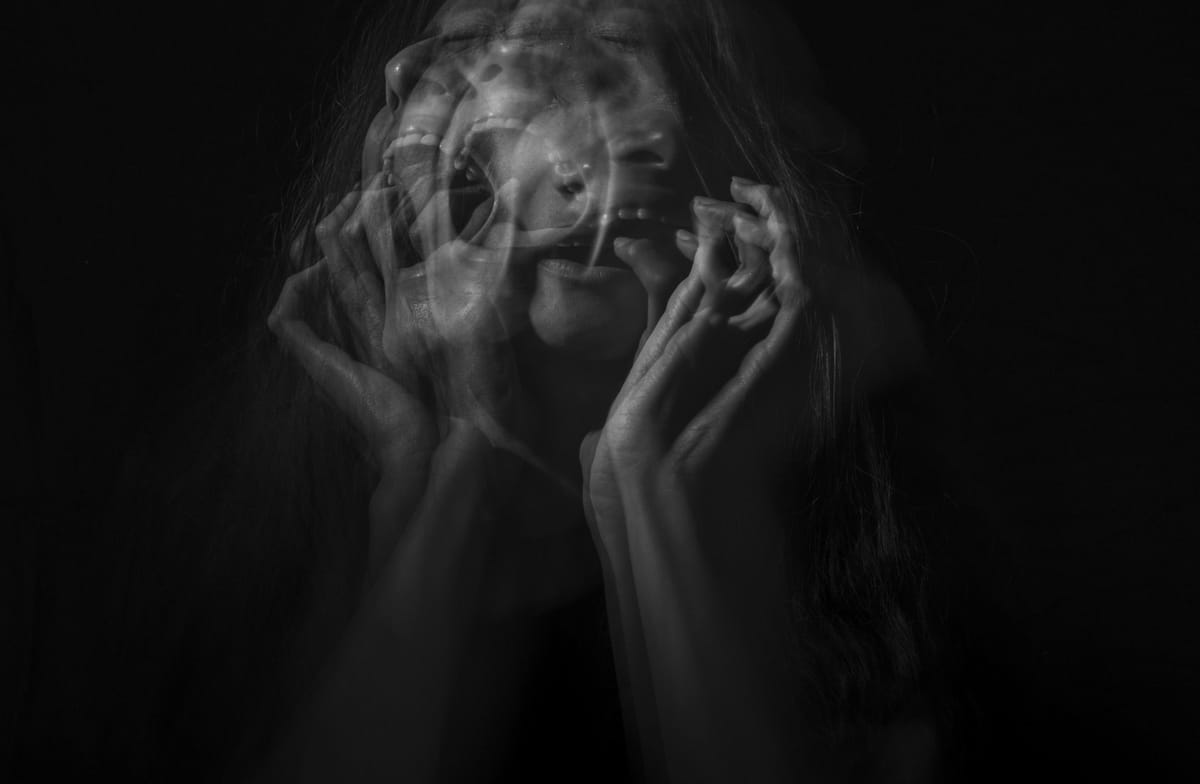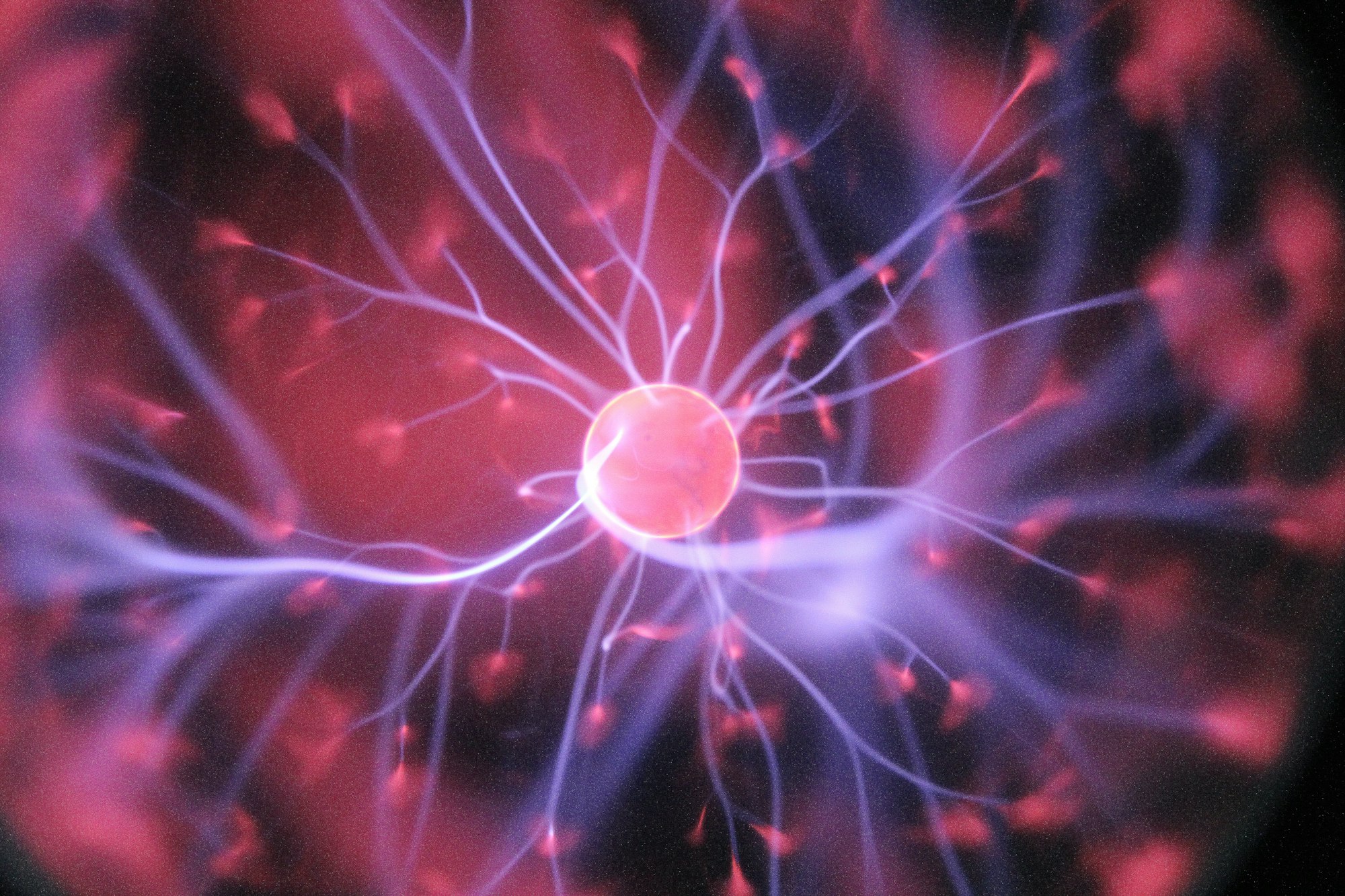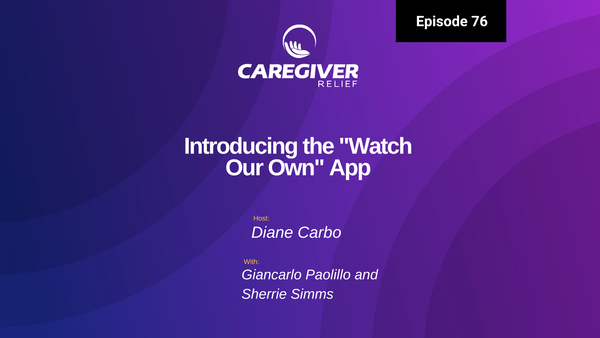Do People with Dementia Hallucinate?

Dementia is an umbrella term for a variety of neurological disorders that affect one’s ability to think, remember, and make decisions. In recent years, dementia has become one of the most prevalent conditions among the aging population, and its progressive nature can have a devastating impact on those afflicted.
In this guide, we will discuss the topic of hallucinations and how they relate to dementia. We’ll review the different types of hallucinations that people with dementia may experience, explain the underlying causes, explore potential treatments, and provide helpful advice for caregivers. By the end of this guide, you will have a better understanding of how hallucinations affect individuals with dementia and how to best support them.
An Overview of Dementia
Dementia is an umbrella term used to describe a wide range of progressive neurological disorders, usually caused by rare diseases or certain medical conditions. It causes deterioration in cognitive and physical functioning that affects daily life, and is commonly seen in elderly people.
The most common form of dementia is Alzheimer’s disease, which is marked by short-term memory loss, difficulty with problem-solving, and personality changes. Other forms of dementia include vascular dementia, Lewy body dementia, frontotemporal dementia, and Parkinson’s disease dementia.
People with dementia become increasingly dependent on others as their condition progresses. They may become disoriented and confused, experience decreased mobility, have difficulty with language, and have trouble controlling emotions.
Dementia has no cure, but there are treatments available that can help slow the progress of the disease and alleviate some of its symptoms. These treatments can include medications, therapies, and lifestyle changes.
Exploring Hallucinations in Dementia
Dementia is a progressive disorder that can cause remarkable changes in cognitive functions, including memory, language, and problem-solving. For many people living with dementia, one of the most disorienting symptoms is hallucinations – false sensory perceptions like seeing or hearing things that are not there.
In this guide, we will explore what hallucinations are, and how they affect individuals living with dementia. We will discuss the causes and treatments, as well as effective coping strategies for caregivers.
By the end of this article, you will have a better understanding of how hallucinations manifest in old age, and how to help someone living with dementia when they are experiencing them.
What Readers Will Learn in This Article
This article is a comprehensive guide about hallucinations and dementia. It will provide readers with an overview of dementia, its common symptoms and how it progresses over time. We will delve into the topic of hallucinations and how they manifest in people with dementia. We will identify the underlying causes of hallucinations, outline existing treatments, and discuss coping strategies for caregivers. Finally, we will summarise the main points discussed in the article and encourage readers to seek additional advice and support.
Specifically, readers will learn:
- The different types of dementia
- Common symptoms associated with dementia
- The definition of hallucinations
- Underlying causes of hallucinations
- Existing treatments that can target hallucinations
- How to surface if a person with dementia is having a hallucination
- Tips on creating a supportive environment for someone with dementia
- Ways to manage the emotional impact of caring for someone with dementia
What is Dementia and its Symptoms?
Dementia is a complex medical condition that affects the brain, leading to problems with memory, thinking, behavior, and emotion. It is a progressive condition, meaning it can worsen over time, leading to increasingly severe disabilities.
There are several types of dementia, including Alzheimer’s disease, Lewy Body dementia, vascular dementia, frontotemporal dementia, and others. Each type of dementia can cause different symptoms, however, some of the most common signs of dementia include:
- Memory loss and confusion, especially in regards to recent events
- Lack of concentration or focus
- Difficulty communicating or speaking clearly
- Changes in behavior, such as apathy, aggressiveness, or impulsiveness
- Trouble with problem-solving and decision-making
- Difficulty with coordination and balance
- Decreased ability to recognize or identify objects
As dementia progresses, it can cause further complications including difficulty swallowing, altered sleep patterns, incontinence, depression, and agitation. It is important to note that everyone experiences dementia differently and has a unique set of symptoms.
Types of Dementia
Dementia is an umbrella term for a group of neurological diseases that cause a decline in mental abilities, including memory, reasoning and communication. There are many different types of dementia, each of which affects different parts of the brain and can present different symptoms.
Common Types of Dementia
- Alzheimer's Disease – the most common type, Alzheimer's affects the ability to reason, remember, imagine and learn.
- Vascular Dementia – caused by reduced blood flow to the brain, vascular dementia causes changes in thinking, behavior, language and movement.
- Lewy Body Dementia – this type is characterized by movement difficulties, forgetfulness, visual hallucinations, depression and anxiety.
- Frontotemporal Dementia – this type is caused by damage to the frontal and temporal lobes of the brain, causing changes in behavior, language and movement.
Although the prognosis for each type of dementia varies, all types cause damage to the brain that can lead to physical and emotional decline. It is important to understand the different types of dementia in order to provide the best possible support and treatment.
Common Symptoms of Dementia
Dementia is an umbrella term that describes a range of conditions that cause cognitive decline. It affects memory, thinking, problem-solving, language, and behavior. Different types of dementia vary in symptoms. The most common symptoms of dementia include:
- Memory Loss – difficulty with recall of recent events, or difficulty recalling experiences from the past.
- Trouble Communicating – difficulty finding words, speaking coherently, or understanding simple instructions.
- Difficulty Reasoning – trouble solving problems or making decisions.
- Trouble with Visual-Spatial Skills – difficulty recognizing objects, judging distances, using maps, or orienting oneself in familiar environments.
- Trouble with Executive Function – difficulty organizing thoughts, planning, multitasking, or adhering to a schedule.
- Personality Changes – drastic shifts in mood, attitude, or behavior, such as aggression, anxiety, or depression.
These symptoms may begin gradually, and worsen over time. In some cases, the symptoms remain mild or stabilize.
Understanding Dementia and Its Progression
Dementia is an umbrella term that covers a wide range of progressive neurological conditions. Common symptoms include memory loss, difficulty problem solving, and impaired communication. As the condition progresses, individuals with dementia may have impairments in movement and coordination, and experience a decline in executive functioning skills, such as the ability to plan ahead and remain organized.
Generally, dementia worsens over time, and affects individuals differently. The rate at which the condition progresses can depend on lifestyle, age, and type of dementia. As the condition progresses, individuals may become increasingly forgetful, experience personality changes, and require more assistance with activities of daily living. It is important to note, however, that everyone’s experience is unique, and some people may progress quickly, while others may remain relatively stable for longer periods of time.
It is important to be aware of the progression of dementia, as early detection and diagnosis can help to slow the onset of some symptoms. Additionally, understanding the signs of progressive cognitive decline can help caregivers create a supportive environment and adopt strategies for effective communication and behavior management.
Hallucinations & Dementia
People with dementia can experience a range of hallucinations, which are false sensory perceptions caused by confusion and delirium. A hallucination is when someone perceives something that isn't there, like they can hear voices or see things that don't exist. People with dementia can have visual, auditory, tactile, olfactory, and gustatory hallucinations.
Illusions are different from hallucinations in that they involve misinterpreting a real sensation. For example, mistaking a person for someone else or hearing words from an animal that has not actually spoken. Illusions are more common than hallucinations in people with dementia.
False memories are also common in dementia. Someone may remember events that didn't happen or mix up their current experience with those from their past. False memories can be confused with hallucinations.
It is important to understand the different types of hallucinations and false memories and how they affect people with dementia. Understanding how to recognize the signs is critical for caregivers, who can then provide support and help manage the situation.
What are Hallucinations?
Hallucinations are false perceptions in the senses – seeing, hearing, feeling, smelling or tasting something that isn’t there. They can take many forms, from hearing voices to seeing flashes of light to feeling like you’re being touched by an invisible hand. It is important to remember that although these perceptions may not be real, for someone with dementia dealing with them can still feel very real.
Confusion and Delirium
Confusion and delirium often occur in people with dementia, which can lead to false sensory perceptions. It is important to recognize the difference between these two similar yet distinct states of mind. Confusion is a temporary mental state, where a person experiences feelings of disorientation or uncertainty. In contrast, delirium is a more serious condition characterized by acute episodes of confusion, which can come on suddenly and affect someone’s ability to think, remember, or make decisions.
People with dementia are more susceptible to confusion and delirium due to the disruption of the brain's normal functioning caused by the disease. Common causes of confusion and/or delirium include side effects from medications, dehydration, infection, changes in their environment, and stress.
It is common for people with dementia to experience a variety of false sensory perceptions as a result of confusion and delirium. This can manifest in the form of hallucinations, illusions, or a combination of both. Hallucinations are when a person experiences sensations that appear to be real, but are not actually there. For example, a person may hear a voice or see a figure that is not there. Illusions are when a person misinterpret something that they see. For instance, an object may seem larger or closer than it actually is.
Hallucinations in Old Age
Hallucinations refer to experiences that appear real but are not actually happening. This phenomenon can manifest in a variety of ways, including seeing, hearing, smelling, tasting, and feeling things that are not there. For the elderly, hallucinations can be especially difficult to manage, as they can often cause confusion and distress.
When it comes to hallucinations in old age, there are several common symptoms that can occur. Visual hallucinations are one of the most common types; these involve seeing people, objects or even entire scenes that are not really present. Sensory hallucinations, on the other hand, may involve the sensation of strange odours or tactile feelings, such as insects crawling on the skin. Auditory hallucinations, or hearing voices, can also be a common symptom.
In cases of dementia, hallucinations can become particularly pronounced, as the brain’s ability to distinguish reality from fantasy is impaired. In some cases, the hallucinations may even be persistent, leading to increased levels of confusion and distress. It is important to remember that hallucinations are not always indicative of a mental health problem – they can also occur as a result of medication side effects, drug use, or sensory deprivation.
Hallucinations and People with Dementia
People with dementia can experience a range of different hallucinations. A hallucination is when someone sees, hears, smells, tastes or feels something that is not actually there. For example, a person with dementia may see movement in the corner of a room when there is nothing there or they may hear voices when in fact no one is speaking.
Hallucinations can be frightening and might cause stress and confusion for those affected. In some cases, the person may believe that what they are experiencing is real and it can be hard for them to distinguish between what is real and what is imagined.
Hallucinations can occur when an individual is confused or in a state of delirium, which is common among people with dementia-related conditions. They can also be triggered by certain medications. It’s important to be aware of the potential causes of hallucinations and to talk to a doctor if concerns arise.
Distinguishing Hallucinations from Illusions
Hallucinations and illusions often get confused, but they are in fact two distinct experiences. An illusion is an incorrect perception of reality, while a hallucination is a false sensory perception that is experienced despite the lack of external stimulus.
Illusions typically result from confusion caused by sensory overload or misinterpreting environmental cues. For example, someone might mistake a shadow for a person or changes in lighting for movement. On the other hand, people may experience hallucinations when sensory signals are misinterpreted or generated without any external stimulus at all.
Some common types of hallucinations experienced by people with dementia include auditory, visual, tactile, olfactory and gustatory. Auditory hallucinations are most common, as they may involve hearing voices or other sounds. Visually, someone may perceive something that isn’t there, like seeing people or objects. Tactile hallucinations are those which give the sense of physical touch, such as feeling bugs crawling on your skin. Olfactory and gustatory hallucinations involve smelling or tasting things that don’t exist.
Real and False Memories
When discussing hallucinations in people with dementia, it is important to understand the difference between real and false memories. A real memory is one that can be recalled accurately and is based on a past experience, while a false memory is one that is distorted or otherwise fabricated. False memories can be crafted without any conscious awareness.
For people with dementia, confusion can easily lead to false memories being created. For example, an individual with dementia may misunderstand the context of a conversation or misremember a certain detail. This can then cause them to form distorted memories of events or conversations that never happened. On the other hand, real memories are more likely to be remembered correctly.
Recognizing if a memory is real or false is crucial in determining the appropriate course of action for people with dementia. If an individual is experiencing a false memory, it is important to be patient and understanding. Providing reassurance and clarifying the facts can help reduce confusion and provide a sense of security. In contrast, if a person with dementia is recalling a real memory, it is important to provide validation and acknowledge the feelings associated with the memory.
Causes & Treatments for Hallucinations in People with Dementia
Hallucinations are a common symptom experienced by people with dementia. They can be caused by underlying physical, psychological and environmental factors. To best manage and reduce the risk and severity of hallucinations, it is important to understand what causes them so that the appropriate treatments can be provided.
Physical causes of hallucinations can include dehydration, sleep deprivation, poor nutrition, undiagnosed or untreated infections, and side effects of medications. Psychological causes can include depression, anxiety, fear, unresolved grief, and extreme loneliness. Environmental factors such as loud noises, disruptions in the normal routine, and changes in the living environment can also trigger hallucinations.
Though there is no cure for dementia, there are several treatments available to help manage the symptoms, including hallucinations. These include medication, psychotherapy, behavior modification, and lifestyle changes. Medication is often prescribed to help with sleep problems, mood disorders, and memory loss. Psychotherapy helps individuals to better understand and cope with their thoughts and feelings. Behavior modification involves activities designed to decrease inappropriate behaviors and increase positive behaviors. Lifestyle alterations may include changes in diet, exercise, and social engagement.
It is important for caregivers to be proactive in managing the symptoms of hallucinations in people with dementia. It is helpful to create a supportive and calming environment for the person with dementia, as well as providing them with distraction techniques such as music or games. Additionally, caregivers can provide reassurance and education to help the individual better understand the hallucination they are having.
What Causes Hallucinations in People with Dementia?
Hallucinations in people with dementia can have many different causes including medical conditions, medications, environmental factors, and age-related changes in the brain. They can also be a sign of distress, fear, or anxiety.
Medical conditions such as infections, high fever, head trauma, stroke, and other neurological conditions can cause hallucinations that may or may not be related to a person’s dementia. Certain medications used to treat dementia can also cause hallucinations so it’s important to talk to your doctor about any changes in behavior.
Environmental factors like noise, excessive lighting, and changes in routine can also cause hallucinations. People with dementia may also experience visual or auditory distortions as a result of their declining sense of sight or hearing.
Age-related changes in the brain can also lead to hallucinations in people with dementia. As the brain ages, it can be more susceptible to cognitive decline, which can result in confusion and delusions, as well as impaired judgment or the inability to distinguish between reality and fantasy.
Finally, hallucinations can be a sign of distress, fear, or anxiety due to a stressful situation. People with dementia may hallucinate as a way to cope with these emotions.
Highlighting Treatments for Hallucinations in Dementia
When it comes to hallucinations in dementia, there are some treatments that can be used to help reduce them. Firstly, it is important to note that the underlying cause of the hallucinations needs to be identified and addressed in order to provide effective treatment. Common causes of hallucinations in people with dementia can include physical health conditions, medication side effects, changes in environment, sensory deprivation or emotional distress.
Once the underlying cause is identified, there are a range of treatments that can help to reduce or manage the hallucinations. For example, medications such as antipsychotics and antidepressants may be prescribed in order to help reduce the severity of the hallucinations. In some cases, non-drug treatments such as psychotherapy and cognitive behavioural therapy may also be beneficial in helping to reduce the hallucinations.
It is important to note that medications can have side effects and should be used with caution. Non-drug treatments can also be beneficial but require the involvement of a trained therapist. Therefore, it is important to discuss the options with a healthcare professional in order to find the best course of treatment for an individual.
Current Treatment Evidence and It’s Relation to Hallucinations in People with Dementia
When a person with dementia experiences a hallucination, it can be frightening for everyone involved. In order to provide the best care to someone with dementia, it is important to understand how to treat such episodes. There are existing treatments that may be used to target hallucinations, however the evidence for their effectiveness is mixed.
Some studies have suggested that antipsychotic medications may be useful for short-term control of hallucinations in people with dementia, however other studies have found that these medications may increase the risk of stroke or even death in this population. Furthermore, use of antipsychotic medications does not appear to reduce the frequency of hallucinations over the long term.
In addition, researchers have looked at non-pharmacological approaches to managing hallucinations in people with dementia, such as reminiscence therapy, music therapy, and art therapy. While some studies have shown that these interventions can help individuals cope with hallucinations more effectively, there is still limited evidence about their efficacy in the long term.
It is important to note that there is no one-size-fits-all approach when it comes to treating hallucinations in people with dementia. Each individual’s situation should be assessed on a case-by-case basis, and decisions about treatment should be made in consultation with the individual’s doctor or healthcare provider.
When it comes to taking care of a loved one with dementia, probably the most difficult aspect is coping with the hallucinations they may experience. Hallucinations are false sensory perceptions and can be terrifying for them and those around them. For caregivers, having a plan in place to handle these episodes can be invaluable. Below are some strategies you can use to better support someone with dementia:
Recognizing Hallucinations
Unlike illusions, which are mistaken perceptions of an object or situation, hallucinations are completely false, like hearing voices that no one else hears. People with dementia may also experience visual hallucinations, either seeing people that are not there or objects that do not exist. Additionally, they may smell things that are not present in the environment or have strange tactile experiences. Recognizing the signs of a hallucination is the first step in helping your loved one cope with this symptom.
Creating a Supportive Environment
Creating a calm and comfortable environment can help lessen the severity of an episode. Make sure there are no overwhelming stimuli such as loud noises, bright lights, strong smells, or large crowds to over-stimulate your loved one. Speak calmly and reassuringly, and try to distract them from the experience with activities such as reading, listening to music, or going for a walk.
Responding Appropriately
It's important to respond to a hallucination with understanding and caution. Don’t try to argue or debate with your loved one but instead, reassure them by saying something like, “It's okay, I'm here with you.” Never try to force your loved one to accept reality, as this will only lead to further confusion and stress.
Managing Emotions
Taking care of someone with dementia can be an emotionally challenging experience. It's important to take breaks and reach out to family and friends for support when needed. Remind yourself to stay in the moment and focus on loving and supporting the person in your care. Try to find joy in moments of connection, even though it may be challenging.
Surfacing Signs of Hallucinations in People With Dementia
Recognizing the signs that a person with dementia is having a hallucination can be difficult as symptoms of dementia vary for each individual. It is important to be aware of the potential signs and look for subtle changes in behavior that may indicate the presence of a hallucination.
Here are a few things to look out for if you suspect a person with dementia is having a hallucination:
- The person may appear more confused than usual and have difficulty understanding the reality of their current situation.
- The person may display abnormal behaviors such as making comments or gestures that don’t make sense.
- The person may express fear, anger, or other emotions related to their hallucination.
- The person may have difficulty communicating or responding to others appropriately.
- The person may become agitated, wander off, or attempt to hide or escape from their hallucination.
If you’re concerned that a person with dementia may be having a hallucination, look for these signs to help determine whether or not their symptoms point towards a hallucination. Once you can identify the warning signs, you can start to find ways to help the person manage their hallucinations and reduce the impact it has on their daily life.
Responding to Hallucinations in Dementia
It can be distressing to see someone you care about having a hallucination. It is important that the person be treated with respect, understanding and care. Here are some tips for caregivers on responding when someone with dementia is having a hallucination:
- Remain calm and speak in a quiet, soothing voice.
- Be reassuring. Acknowledge their feelings and let them know it is ok.
- Distract them from the hallucination by focusing on something else. Talk to them about something else or encourage them to do an activity.
- Do not argue against it or try to convince them it is not real.
- Stay present and attentive without being intrusive.
- If they become agitated, provide physical contact and reassurance.
- Encourage regular breaks and offer to help if needed.
By understanding the experience of people with dementia who experience hallucinations, caregivers are better equipped to offer support and help ensure their safety.
Creating a Supportive Environment for People with Dementia
Caring for someone with dementia can be emotionally exhausting and overwhelming. It is important to create a supportive environment for your loved one because it helps them to retain their sense of dignity, identity and autonomy. Here are some tips on how to create a supportive environment for someone suffering from dementia:
- Be patient - It is important to remember that people with dementia can get confused and have difficulty communicating. Speak slowly and allow them the time they need to respond.
- Encourage independence - People with dementia can still do many things on their own. Encourage independence by providing them with simple tasks that they can do independently and with some help.
- Create a calm atmosphere - A calm atmosphere can help a person suffering from dementia feel more relaxed. Try to minimize any distractions such as loud noises, bright lights or busy environments.
- Stay positive - Try to remain positive and focus on the things that your loved one can still do. This will help to build their confidence and reduce feelings of frustration.
- Provide structure - Provide a daily routine that offers structure and helps to give the person with dementia a sense of security.
- Connect with others - Remain connected with other family members, friends and support groups who can provide additional assistance and comfort.
Creating a supportive environment can help a person with dementia to maintain their quality of life despite their illness. Remember, every individual is different and it is important to be flexible with your approach and try different things to see what works best for them.
Managing The Emotional Impact Of Caring For Someone With Dementia
Caring for someone with dementia can be an emotionally and physically exhausting experience. Many caregivers find it difficult to manage their own emotions, while simultaneously caring for a loved one. It is important to take a step back and assess what is needed to feel emotionally supported.
Set Boundaries:
It is important to set boundaries in order to maintain your emotional wellbeing. Establish limits on what you can and cannot do, and figure out how and when to take breaks for yourself in order to remain emotionally balanced. It is also essential to communicate your needs with family, friends, and other caregivers in order to build a strong support system.
Practice Self-Compassion:
There may be days when you need to forgive yourself for feeling overwhelmed or frustrated. Recognize that caregiving is a challenging task, and it takes a tremendous amount of strength and patience. Give yourself permission to make mistakes, and understand that feelings of guilt or inadequacy are normal.
Look After Your Physical Health:
Taking care of your physical health is essential when managing the emotional impact of caring for someone with dementia. Regular exercise, a healthy diet, and enough rest and sleep help to reduce stress and regulate emotions. It is also beneficial to take part in activities that help to relax the mind, such as meditation, yoga, or gentle walks in nature.
Seek Professional Help:
If necessary, consider seeking professional help, either through counseling or support groups. Talking to a qualified mental health professional can often provide helpful guidance and advice for coping with the challenging emotions that come with caregiving.
By recognizing and addressing our own emotional needs, we can begin to create a healthier balance between caring for our loved one and looking after ourselves.
Hallucinations are a distressing and often misunderstood symptom of dementia. For people living with dementia, hallucinations can be confusing, frightening, and difficult to manage. Fortunately, research is giving us a better understanding of the underlying causes and possible treatments available for managing this symptom.
For caregivers, it’s important to understand the difference between a real memory and a false one, and to be prepared to provide a supportive environment that includes coping strategies to help manage the emotional impact of caring for someone living with dementia.
In summary, we have explored how hallucinations in people with dementia can manifest, the underlying causes, available treatments, and coping strategies for caregivers. Although there is still much to learn about this complex issue, we now have the tools and knowledge necessary to increase awareness and support those affected by this condition.
Seeking Additional Advice and Support
Caring for someone with dementia can be overwhelming and confusing. It’s important to remember that it’s not your fault if the person you are caring for experiences hallucinations. There are many organizations that provide guidance and advice on how to cope with dementia and hallucinations.
It is recommended that you reach out to a qualified medical professional if you have concerns about your loved one’s mental health. There are many resources available to provide support and advice. You may also want to consider joining an online or offline support group that specializes in dementia. This can be a great way to connect with others who are in similar situations, as well as to receive advice from experts.
Your local Alzheimer’s Association and other dementia organizations are also excellent sources of additional information and resources. By seeking support, you will be better equipped to manage the day-to-day challenges of dementia and hallucinations.
You might also like this article:











